Atsuo Nakamura
Nacimiento : 1940-02-18, Tokyo, Japan
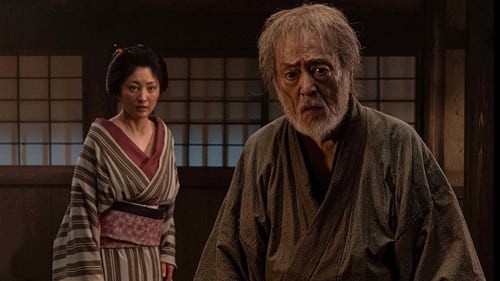
Tatsuya Nakadai, the world’s greatest living actor, returns to the screen in a brilliant adaptation of a story by novelist Shuhei Fujisawa. A traveling gambler known as “Funeral Uno” he is now 86 years old and returning to his hometown for the first time in 30 years. Partly told in flashbacks, he is forced to face his lifelong nemesis, Boss Kyuzo, a vile yakuza portrayed by another superstar of samurai cinema, Atsuo Nakamura! Before the two old gamblers can settle a 30-year-old score they must put their lives on the line in a game of dice that can only lead to a bloody sword duel the likes of which has never before been seen! Superb performances all around in a film loaded with surprises and exciting swordplay!
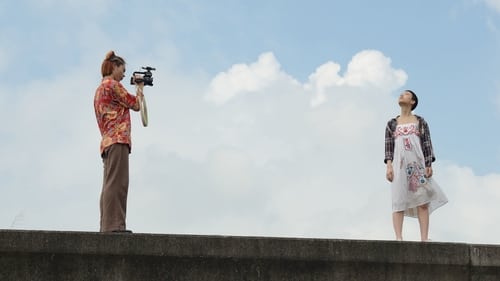
Old Man
Chiyoko’s mother died when she was young. Since that time, Chiyoko has closed her heart to others. After her pet dies, Chiyoko feels loneliness. Her mother liked the Italian movie "La Strada." Due to movie study club senior, Masamune, Chiyoko is able to watch the Italian movie "La Strada," which her mother liked. Chiyoko soon acts in a movie directed by Masamune.

Ryusaku Oizumi

Two TV directors want to film people visiting a suicide forest.

At a companywide meeting, Bunsaku Akiba sees Toshie, an old girlfriend who is now the secretary and lover of Nishijima, the chairman who has control over the entire group. Although Akiba is married, the love affair between him and Toshie flares up again. Akiba uses Toshie to approach the chairman, but as Toshie gets more possessive of him, Akiba starts to have murderous thoughts.

Masahito Mizorogi
Transfer student Biito “Beat” Mizorogi, talented in fashion design, bring classmates together to stage a fashion show for the school's annual festival.

Bandit leader "Night Rabbit" Kakuemon has always kept the rule to "never kill, never rape, never steal from the poor", passed down to him by the gang's previous leader. He has never been arrested, and for that, he always thought he would have a peaceful death. But one day, after talking to a young one-armed homeless girl, he decides to break up his gang and turn himself in.

The year 1864: The Shinsengumi, the shogun’s armed force in Kyoto ripped the city apart, with blades in hand, searching for pockets of resistance, slaughtering the samurai who sought to bring down the shogunate and restore Japan’s emperor to power. By chance, Murao Mayumi and his sister Shiho, meet samurai Kurata. Murao, seeking his fortune with his sword-arm, will join Shinsengumi, never suspecting his friend Kurata is secretly Kurama Tengu, who hides his face in a black hood, and who will tear a bloody swath through Shinsengumi’s massed blades, to aid the samurai who had taken up the emperor’s cause. Will friend kill friend in a time of war?

Fumio Nagasaka
Japanese director Satoshi Isaka spins this taunt thriller about an ultra-ambitious reporter who soon finds herself on the receiving end of tabloid dirt. Popular television actress Hitomi Kuroki stars as Yuko, an ice-queen TV news editor who is approached by a mysterious man from the PTT Ministry. The man offers her proof, on videotape, that a major university is bribing a particular government official to overlook a massive media merger. The secret transaction has already resulted in the death of one investigator. Yuko promptly broadcasts the damning footage, and high-ranking bureaucrat Aso (Takanori Jinnai) is forced out of office.

Produced for Fuji TV in 2000, the film reinterprets the story of a special samurai force - the Shinsengumi - at the end of the Edo period.

Masamune Date
A gang of evil ninjas has stolen the sacred sword of the Lady Mayu and are demanding that her family exchange her for the family treasure. The world's greatest swordsman, Shuranosuke Sakaki, is called in to get the sword back.

Zenkichi Isono

Sho Shinoda
In the midst of a bad economy, Yokoyama, the vice president of Taiyo Real Estate, launches a plan to cut back on his labor force. Fifty employees are segregated into a special assignment division and given an ultimatum: meet a sales goal of 1.5 billion yen within three months or be fired. Spiteful of their unjust treatment, two men, Shinoda and Takigawa, take up the battle against the ruthless Yokoyama.

El joven noble Asano decide combatir a Kira, un viejo señor feudal que ha logrado su posición mediante actos injustos y corruptos. Con este fin, Asano se niega a pagar los tributos que Kira le reclama. Al conocer la decisión, Kira pone en marcha un plan para humillarle, empujando a Asano al harakiri (seppuku). Los samuráis que sirvieron a Asano, ahora marginados ronin, prepararán la venganza.

Screenplay
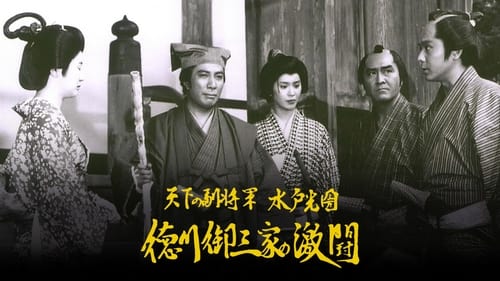
Screenplay

Director
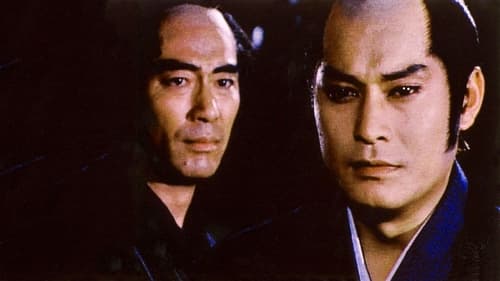
Set in the Kyushu area of the Edo period. This is a large-length bizarre story that incorporates elements such as mysteries and adventures surrounding hidden gold mines.

Hideo Yoshida
Un boxeador norteamericano es contratado por un japonés minsuválido para introducir en Japón una valiosa espada samurái. Todo parece marchar bien hasta que el protagonista es secuestrado por unos criminales que buscan la misma espada. El origen del problema es una contienda entre hermanos que ha enfrentado durante 37 años a dos facciones que luchan por la posesión de dos espadas gemelas.

Minoru Tamiya
Un joven australiano (Capitán Page), enrolado en las Fuerzas Especiales Z, es nombrado para llevar a buen fín el "Plan Lyon". Con el fín de establecer una ruta de escapada hacia Sumatra. En una arriesgada aventura el comando que dirige el Capitán Page lleva acabo su peligrosa misión y distribuyen minas en el lugar donde se almacena cargamento militar y tanques japoneses.
La playa rápidamente se convierte en un inmenso infierno y las 40.000 toneladas de material son destruidas.
Tras este éxito, se planea un segundo ataque, pero las cosas van mal esta vez.
Trece miembros de las Fuerzas Z resultarán muertos y los 10 restantes son capturados y encarcelados en Singapur, entre ellos Page. Aquí comienzan seis meses de torturas e interrogatorios y de caballerosos gestos de amistad entre presos y carceleros. Todos ellos, hombres de honor.

The story of a high school boy (Toshiyuki Nagashima) in Tokyo returning to his home town of Nagano upon the death of his father.

Soji Yamagami
Sen Rikyu is a ceremonial tea master who advises warlord Hideyoshi in sixteenth-century feudal Japan. His daughter, the beautiful Lady Ogin, has an unrequited love for Lord Ukon, who has angered Hideyoshi by becoming a Christian convert. Ogin's father Rikyu also displeases Hideyoshi by opposing the warlord's plan to invade China and Korea. When the animalistic Hideyoshi is rejected by Ogin, he threatens her and her father with arrest and worse.

Gennosuke Higaki
The story of Sanshiro Sugata, a young man who wants to learn the new art of judo. A wise teacher reveals to Sanshiro that judo is not merely a means of combat nor a demonstration of physical skill, but an art which reveals the artist to himself.
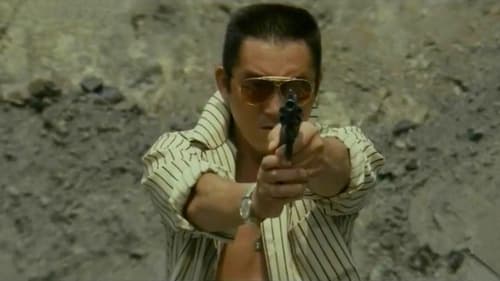
Ginzô Katahara
It is the first Toei yakuza film directed by Akinori Matsuo, who was active in Nikkatsu action movies. It is a local yakuza movie made following Okinawa Yakuza War (1976) and Hokuriku Proxy War (1977). The film depicts the war between a storied yakuza killer (Hiroki Matsukata) and the largest organized crime group in the Kansai region, which plans to advance into the Kanto region.

Romance film

In the early hours of April 13th, a five year old hemophiliac child was kidnapped by someone from Tanemura General Hospital in Tokyo, Setagaya. Tokyo Metropolitan Police Department Inspector Kitahara, who received the report, goes quickly to the Tanemura home, along with other police to speak to the family of the child. Then, suddenly, the phone rings. The kidnapper wants money.

A rare film about the Zainichi and the relations between Japan and South Korea. It is the first feature film ever directed by a zainichi director to explore these issues.

Film about the Ashio Copper Mine Incident and Shozo Tanaka.

Thirsting for revenge, Jokichi rashly attempts to assassinate the evil Chogoro but ends up being captured by Yakuza. His life is spared by Boss Juzaburo, in order that the harmony of an important commemoration not be further disturbed. Though now even more of an outcast, Jokichi is asked by another Yakuza boss, Umezo, to guard Oyuki, the wayward daughter of Juzaburo. The tragic consequences of this assignment will lead him into a deadly trap and a final confrontation with Chogoro.

Undercover cop Kikuchi teams up with the Okinawa local police to clean up the narcotics and prostitution underworld.
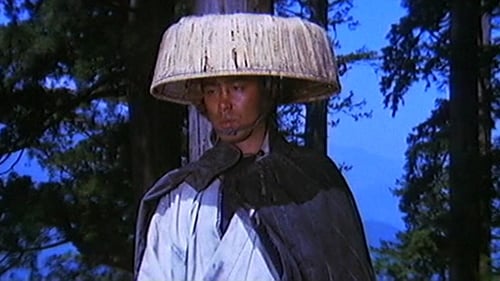
Can a sinful man change and find peace? It's unlikely in gang-plagued Japan. Jokichi of Mikogami, a drifter (and hired sword), goes straight after protecting a woman in distress: they marry, have a son, and Jokichi pursues his father's craft. After three years, the gangs he embarrassed when he saved his wife find the family and leave Jokichi in grief, vowing revenge. To parry his terrible swift sword, rival gangs join forces, hiring a prostitute to pose as a woman needing help and breaking the code of honor to double cross the drifter. He finds unlikely allies: a thief who aids him for fun and a one-eyed swordsman who may be Jokichi's equal in skill and honor.

Un estudio fascinante sobre la época de la Segunda Guerra Mundial y de la postguerra en Japón, a través de los ojos de un joven perteneciente a una familia poderosa. Es quizá el trabajo más autobiográfico del director. En efecto, Oshima creció durante esa época, en circunstancias similares, y era descendiente de una importante familia de samuráis.

Iwabuchi of the Metropolitan Police Department's Investigation Division cooperates with Kubo of the Foreign Affairs Division in re-investigating the case of a foreign drug addict's death at the request of Kubo.
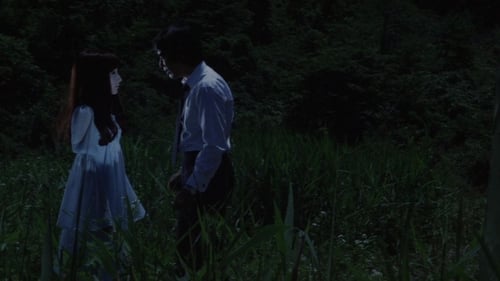
Kazuhiko Sagawa - Keiko's Brother
Un médico investiga los asesinatos de varias mujeres en una localidad lacunífera. Su investigación le aporta evidencias sobre que hay un vampiro que es responsable por las muertes.

La historia se desarrolla durante el período de Mizuno Tadakuni (1793-1851). El Señor Mizuno era un moralista extremo y trató de proscribir cualquier cosa más o menos placentera. Su razonamiento era que cosas como obras teatrales, novelas populares, comidas caras, pinturas, etc ... contribuían a la decadencia de la moral nacional.

安川
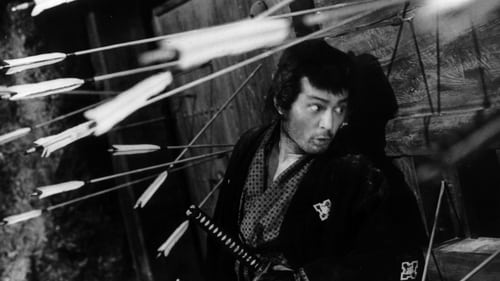
Tetsutaro
A pair of down-on-their-luck swordsmen arrive in a dusty, windblown town, where they become involved in a local clan dispute. One, previously a farmer, longs to become a noble samurai. The other, a former samurai haunted by his past, prefers living anonymously with gangsters. But when both men discover the wrongdoings of the nefarious clan leader, they side with a band of rebels who are under siege at a remote mountain cabin.

The film is set in Kyoto at the end of the Tokugawa period, when there is a fierce clash between the supporters of the Emperor, who are fighting for the overthrow of the Shogunate, and the Shinsengumi squad, who are chasing them. Suddenly, a mysterious masked warrior appears, on a white horse he is called Tengu from Mount Kurama and he opposes the Shinsengumi.
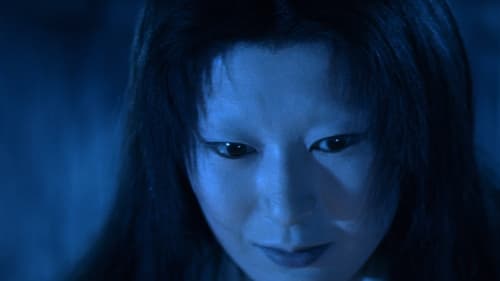
(segment "Miminashi Hôichi no hanashi") (uncredited)
Filme basado en cuatro historias del escritor Lafcadio Hearn. "Pelo negro": un samurái no soporta a su mujer y la abandona por una princesa. Años después vuelve a casa para realizar un terrible descubrimiento. "La mujer en la nieve": dos leñadores se refugian de una tormenta de nieve en lo que parece ser un cobertizo abandonado. "Hoichi": el fantasma de un samurái le pide a un músico ciego que toque una balada en la tumba de su señor. "En la taza de té": un samurái se asusta ante la visión de un hombre reflejado en su taza de té.





























